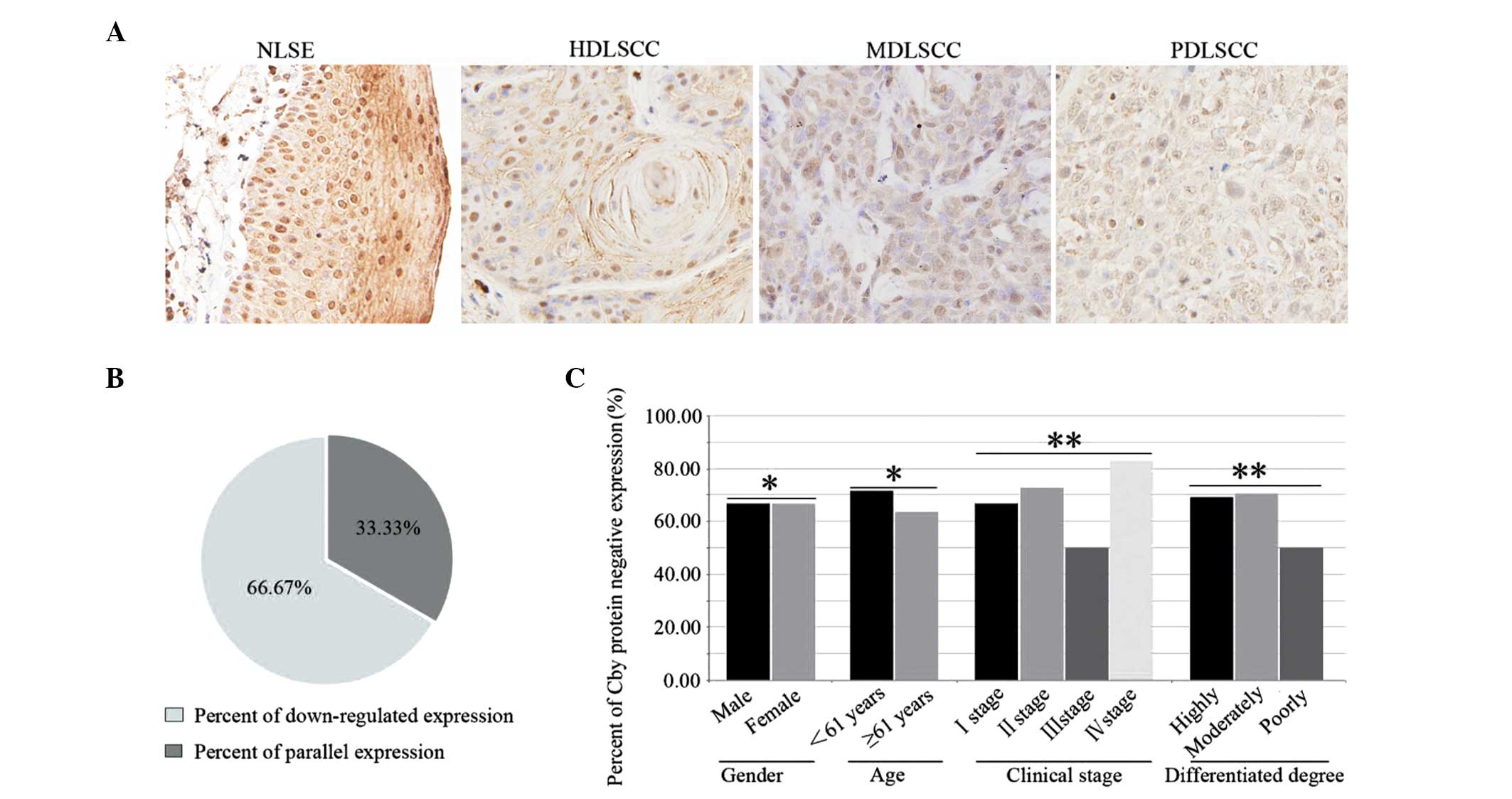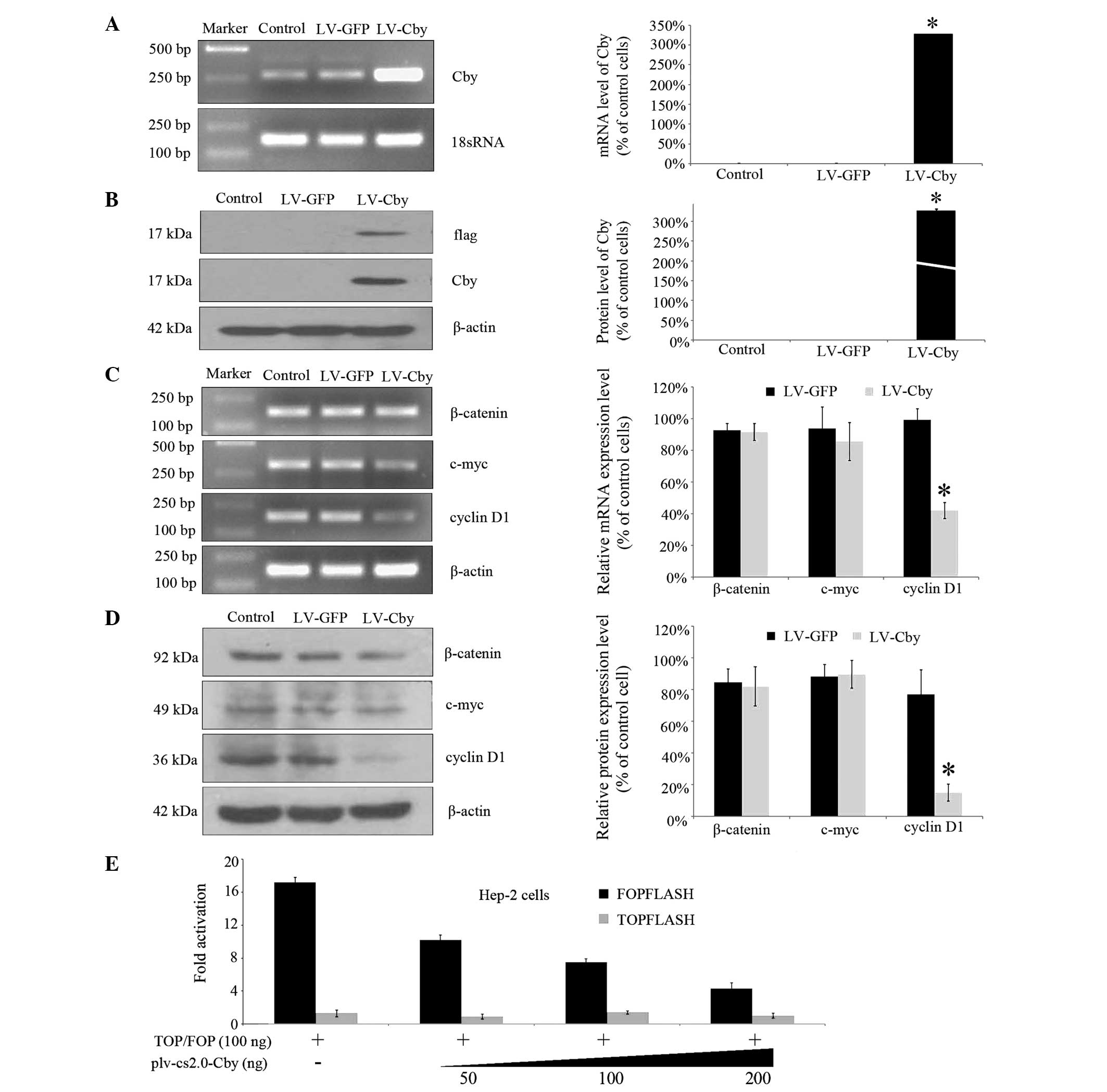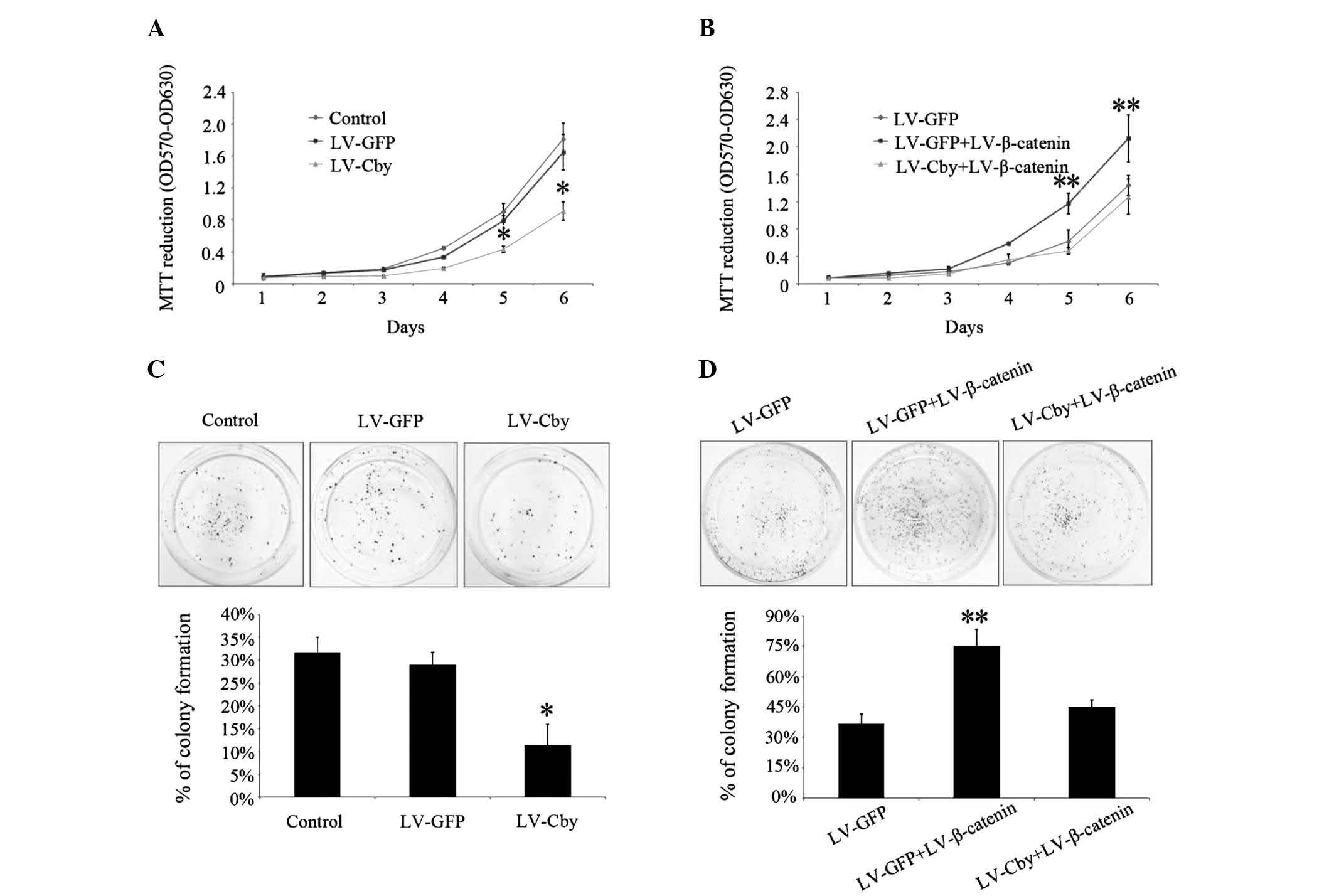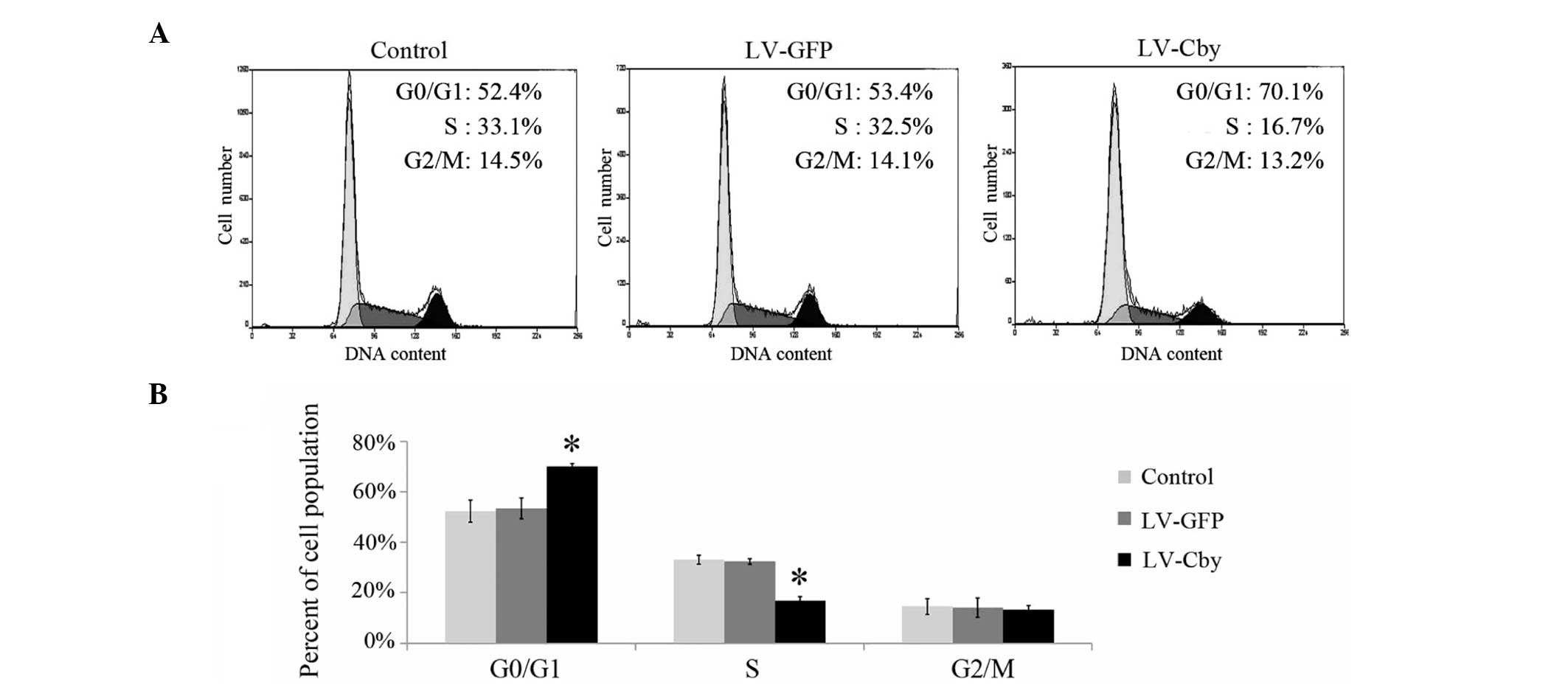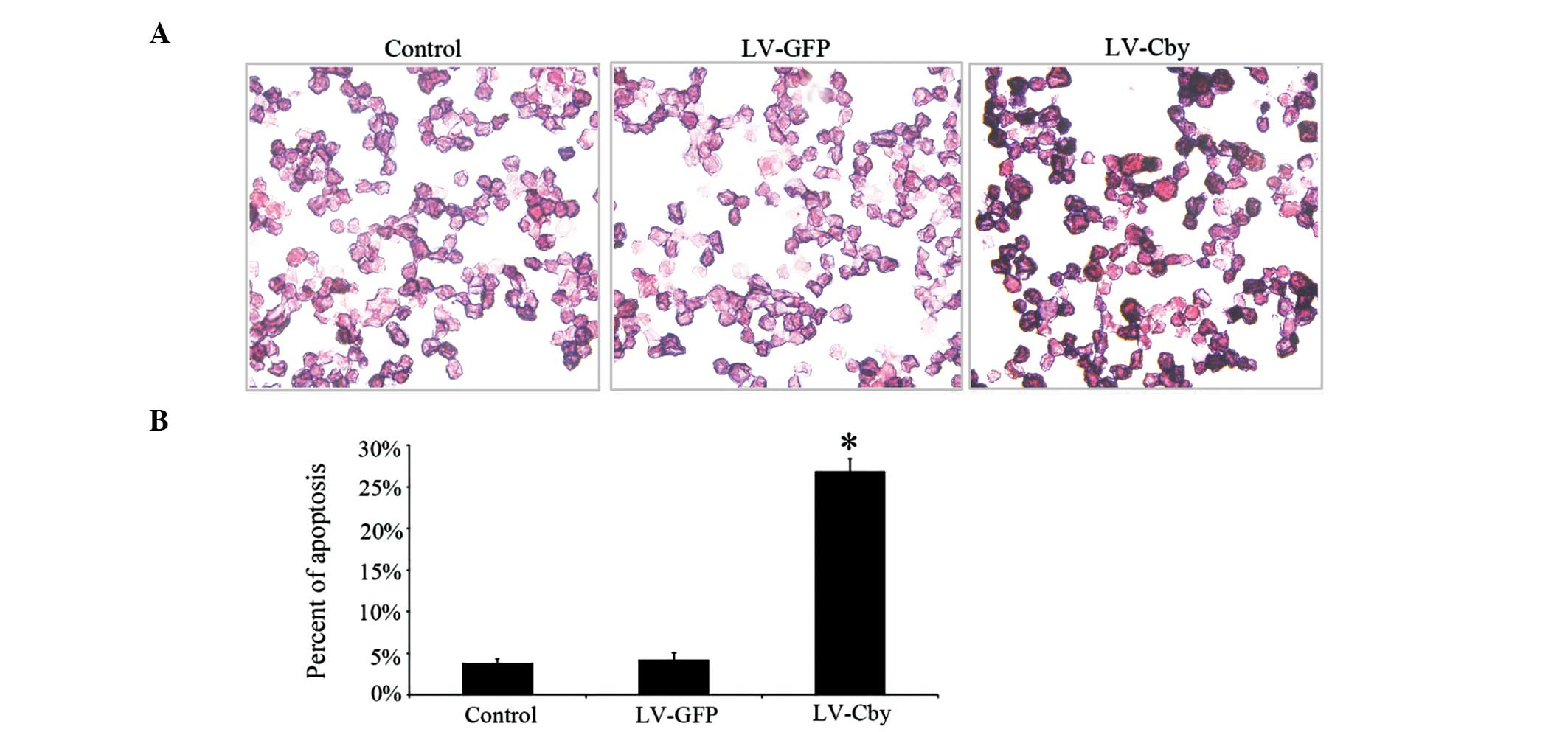|
1
|
Mojica-Manosa P, Reidy J, Wilson K and
Douglas W: Larynx squamous cell carcinoma: concepts and future
directions. Surg Oncol Clin N Am. 13:99–112. 2004. View Article : Google Scholar : PubMed/NCBI
|
|
2
|
Almadori G, Bussu F, Cadoni G, Galli J,
Paludetti G and Maurizi M: Molecular markers in laryngeal squamous
cell carcinoma: towards an integrated clinicobiological approach.
Eur J Cancer. 41:683–693. 2005. View Article : Google Scholar : PubMed/NCBI
|
|
3
|
Klaus A and Birchmeier W: Wnt signalling
and its impact on development and cancer. Nat Rev Cancer.
8:387–398. 2008. View
Article : Google Scholar : PubMed/NCBI
|
|
4
|
Clevers H: Wnt/β-catenin signaling in
development and disease. Cell. 127:469–480. 2006.
|
|
5
|
Brown AM: Wnt signaling in breast cancer:
have we come full circle? Breast Cancer Res. 3:351–355. 2001.
View Article : Google Scholar : PubMed/NCBI
|
|
6
|
Lustig B and Behrens J: The Wnt signaling
pathway and its role in tumor development. J Cancer Res Clin Oncol.
129:199–221. 2003.PubMed/NCBI
|
|
7
|
Polakis P: Wnt signaling and cancer. Genes
Dev. 14:1837–1851. 2000.
|
|
8
|
Taipale J and Beachy PA: The Hedgehog and
Wnt signalling pathways in cancer. Nature. 411:349–354. 2001.
View Article : Google Scholar : PubMed/NCBI
|
|
9
|
Logan CY and Nusse R: The Wnt signaling
pathway in development and disease. Annu Rev Cell Dev Biol.
20:781–810. 2004. View Article : Google Scholar : PubMed/NCBI
|
|
10
|
Kimelman D and Xu W: Beta-catenin
destruction complex: insights and questions from a structural
perspective. Oncogene. 25:7482–7491. 2006. View Article : Google Scholar : PubMed/NCBI
|
|
11
|
Tetsu O and McCormick F: b-catenin
regulates expression of cyclin D1 in colon carcinoma cells. Nature.
398:422–426. 1999. View
Article : Google Scholar : PubMed/NCBI
|
|
12
|
Shtutman M, Zhurinsky J, Simcha I, et al:
The cyclin D1 gene is a target of the β-catenin/LEF-1 pathway. Proc
Natl Acad Sci USA. 96:5522–5527. 1999.
|
|
13
|
He TC, Sparks AB, Rago C, et al:
Identification of c-MYC as a target of the APC pathway. Science.
281:1509–1512. 1998. View Article : Google Scholar : PubMed/NCBI
|
|
14
|
Pietruszewska W, Kobos J and Gryczyński M:
Expression of beta-catenin protein in laryngeal squamous-cell
carcinoma. Otolaryngol Pol. 58:949–956. 2004.(In Polish).
|
|
15
|
Si WF, Sun W, Liu H, Liu J, Sun Y and Chen
Z: Expression and clinical significance of E-cadherin and
beta-catenin proteins in human laryngeal cancer. Lin Chung Er Bi
Yan Hou Tou Jing Wai Ke Za Zhi. 22:459–461. 2008.(In Chinese).
|
|
16
|
Goulioumis AK, Varakis J, Goumas P and
Papadaki H: Differential β-catenin expression between glottic and
supraglottic laryngeal carcinoma. Eur Arch Otorhinolaryngol.
267:1573–1578. 2010.
|
|
17
|
Sanz Ortega J, Valor C, Saez MC, et al:
3p21, 5q21, 9p21 and 17p13 allelic deletions accumulate in the
dysplastic spectrum of laryngeal carcinogenesis and precede
malignant transformation. Histol Histopathol. 18:1053–1057.
2003.
|
|
18
|
Pećina-Šlaus N, Kljaić M and
Nikuševa-Martić T: Loss of heterozygosity of APC and CDH1 genes in
laryngeal squamous cell carcinoma. Pathol Res Pract. 201:557–563.
2005.PubMed/NCBI
|
|
19
|
Takemaru K, Yamaguchi S, Lee YS, Zhang Y,
Carthew RW and Moon RT: Chibby, a nuclear β-catenin-associated
antagonist of the Wnt/Wingless pathway. Nature. 422:905–909.
2003.
|
|
20
|
Takemaru K, Fischer V and Li FQ:
Fine-tuning of nuclear β-catenin by Chibby and 14-3-3. Cell Cycle.
8:210–213. 2009.
|
|
21
|
Li FQ, Mofunanya A, Harris K and Takemaru
K: Chibby cooperates with 14-3-3 to regulate β-catenin subcellular
distribution and signaling activity. J Cell Biol. 181:1141–1154.
2008.PubMed/NCBI
|
|
22
|
Greaves S: Small changes in Wnt
signalling. Nat Cell Biol. 5:3872003. View Article : Google Scholar : PubMed/NCBI
|
|
23
|
Karakoula K, Suarez-Merino B, Ward S, et
al: Real-time quantitative PCR analysis of pediatric ependymomas
identifies novel candidate genes including TPR at 1q25 and
CHIBBY at 22q12-q13. Genes Chromosomes Cancer. 47:1005–1022.
2008. View Article : Google Scholar : PubMed/NCBI
|
|
24
|
Schuierer MM, Graf E, Takemaru K,
Dietmaier W and Bosserhoff AK: Reduced expression of β-catenin
inhibitor Chibby in colon carcinoma cell lines. World J
Gastroenterol. 12:1529–1535. 2006.
|
|
25
|
Kafri T, van Praag H, Ouyang L, Gage FH
and Verma IM: A packaging cell line for lentivirus vectors. J
Virol. 73:576–584. 1999.PubMed/NCBI
|
|
26
|
Lowry OH, Rosebrough NJ, Farr AL and
Randall RJ: Protein measurement with the Folin phenol reagent. J
Biol Chem. 193:265–275. 1951.PubMed/NCBI
|
|
27
|
Pinto D and Clevers H: Wnt control of stem
cells and differentiation in the intestinal epithelium. Exp Cell
Res. 306:357–363. 2005. View Article : Google Scholar : PubMed/NCBI
|
|
28
|
Li FQ, Mofunanya A, Fischer V, Hall J and
Takemaru K: Nuclear-cytoplasmic shuttling of Chibby controls
β-catenin signaling. Mol Biol Cell. 21:311–322. 2010.PubMed/NCBI
|
|
29
|
Jonas JC, Laybutt R, Steil GM, Trivedi N,
Weir GC and Henquin JC: Potential role of the early response gene
c-myc in beta-cell adaptation to changes in glucose concentration.
Diabetes. 50:S1372001. View Article : Google Scholar : PubMed/NCBI
|
|
30
|
Fields WR, Desiderio JG, Putnam KP,
Bombick DW and Doolittle DJ: Quantification of changes in c-myc
mRNA levels in normal human bronchial epithelial (NHBE) and lung
adenocarcinoma (A549) cells following chemical treatment. Toxicol
Sci. 63:107–114. 2001. View Article : Google Scholar
|
|
31
|
Liu T, Peng H, Wu Z and Cui C: Expression
and significance of signal transducer and activator of
transcription 3 and c-myc in laryngeal squamous cell carcinoma. Lin
Chung Er Bi Yan Hou Tou Jing Wai Ke Za Zhi. 24:648–651. 2010.(In
Chinese).
|
|
32
|
Krecicki T, Fraczek M, Jelen M, Zatonski
T, Szkudlarek T and Dus D: Expression of c-myc oncoprotein in
laryngeal squamous cell carcinoma. Acta Otolaryngol. 124:634–637.
2004. View Article : Google Scholar : PubMed/NCBI
|
|
33
|
Long X, Hu S, Cao P, Liu Z, Zhen H and Cui
Y: The expression of oncogene c-myc and its role on human laryngeal
cancer. Lin Chung Er Bi Yan Hou Tou Jing Wai Ke Za Zhi.
23:1127–1129. 2009.(In Chinese).
|
|
34
|
Fernando R, Foster JS, Bible A, et al:
Breast cancer cell proliferation is inhibited by BAD: regulation of
cyclin D1. J Biol Chem. 282:28864–28873. 2007. View Article : Google Scholar : PubMed/NCBI
|
|
35
|
Fu ZJ, Ma ZY, Wang QR, et al:
Overexpression of CyclinD1 and underexpression of p16 correlate
with lymph node metastases in laryngeal squamous cell carcinoma in
Chinese patients. Clin Exp Metastasis. 25:887–892. 2008. View Article : Google Scholar : PubMed/NCBI
|
|
36
|
Papadimitrakopoulou V, Izzo JG, Liu DD, et
al: Cyclin D1 and cancer development in laryngeal premalignancy
patients. Cancer Prev Res (Phila). 2:14–21. 2009. View Article : Google Scholar : PubMed/NCBI
|















